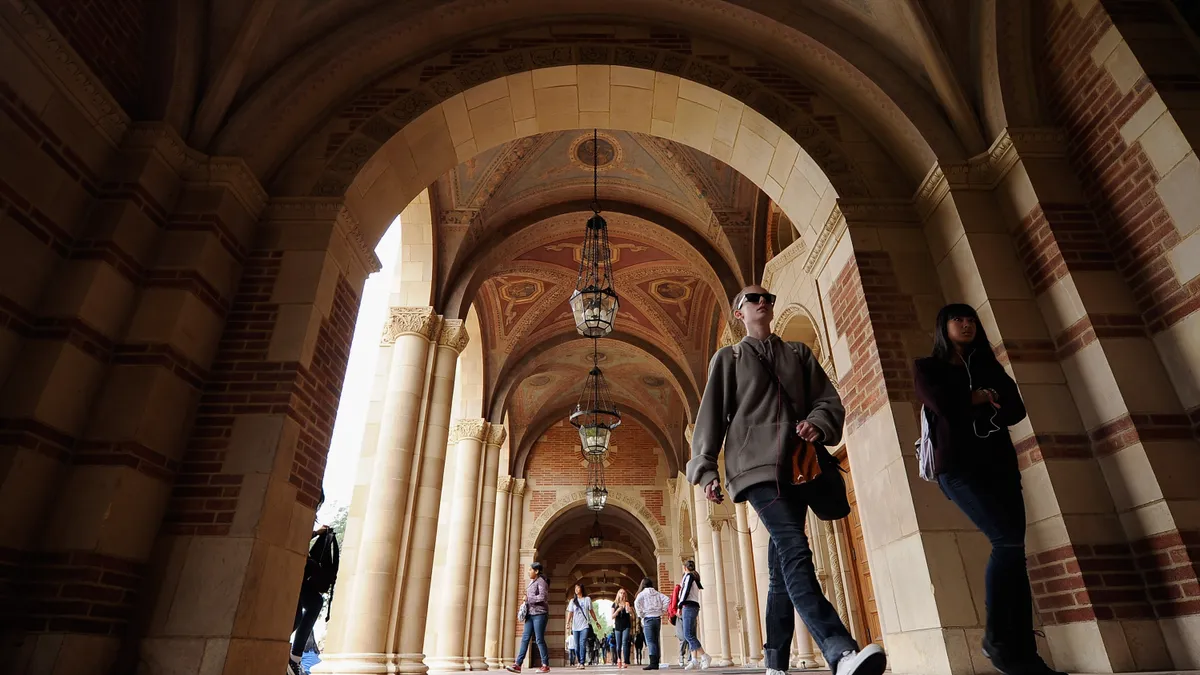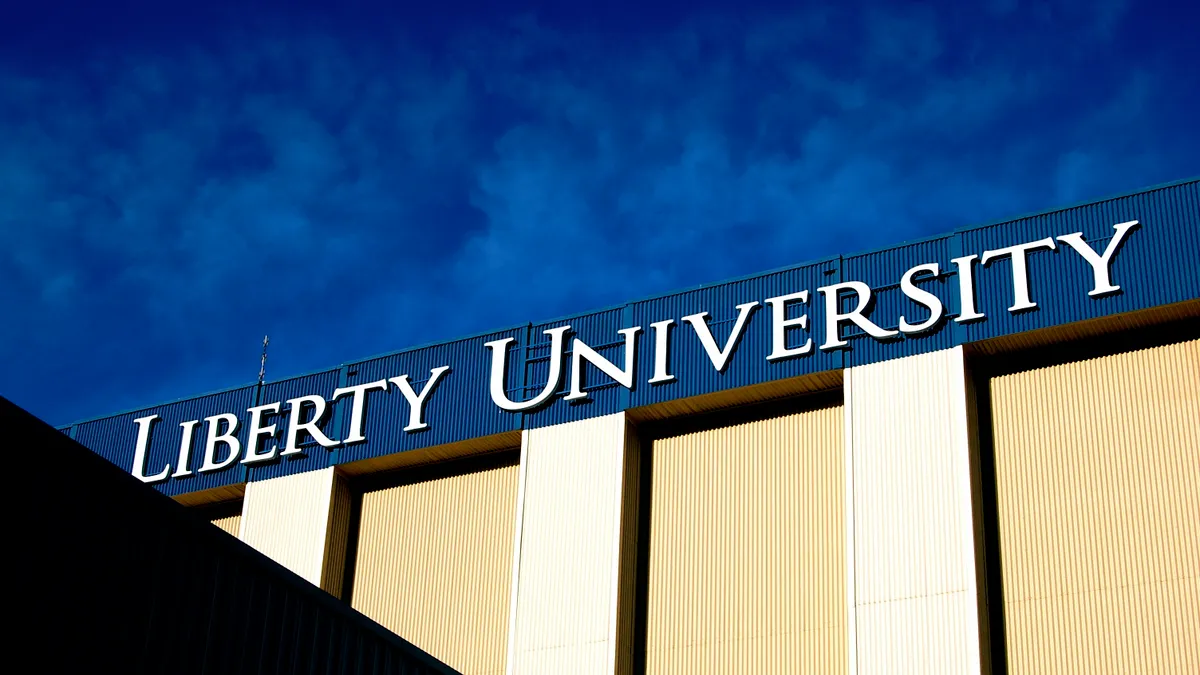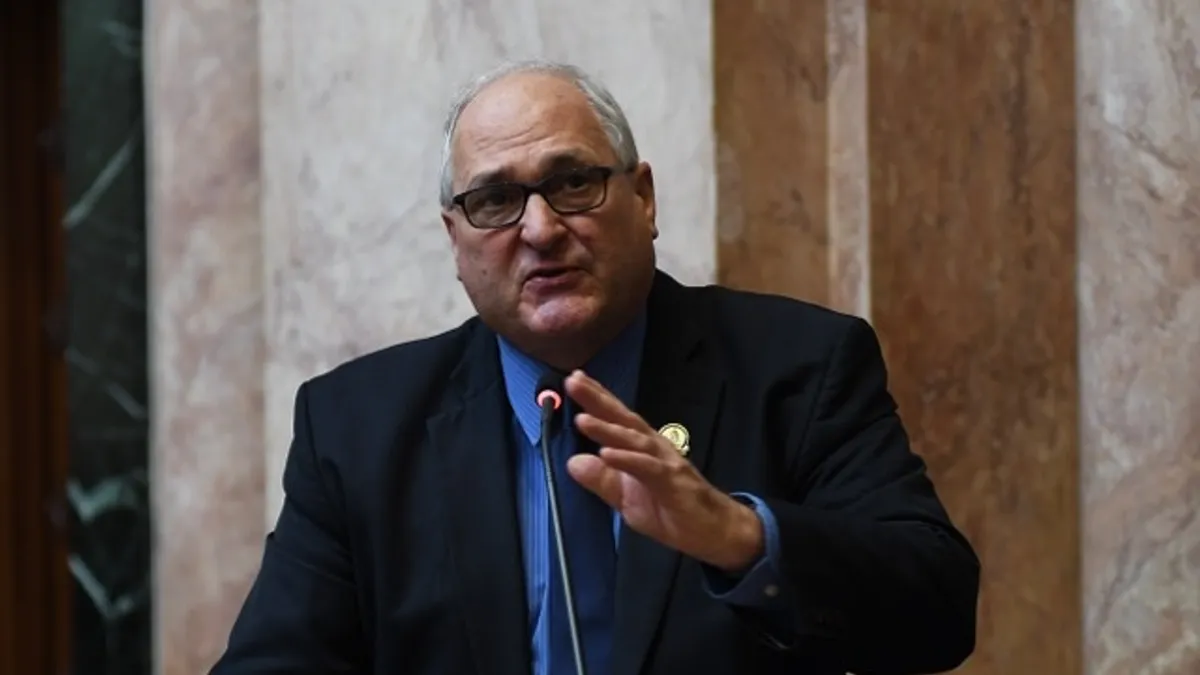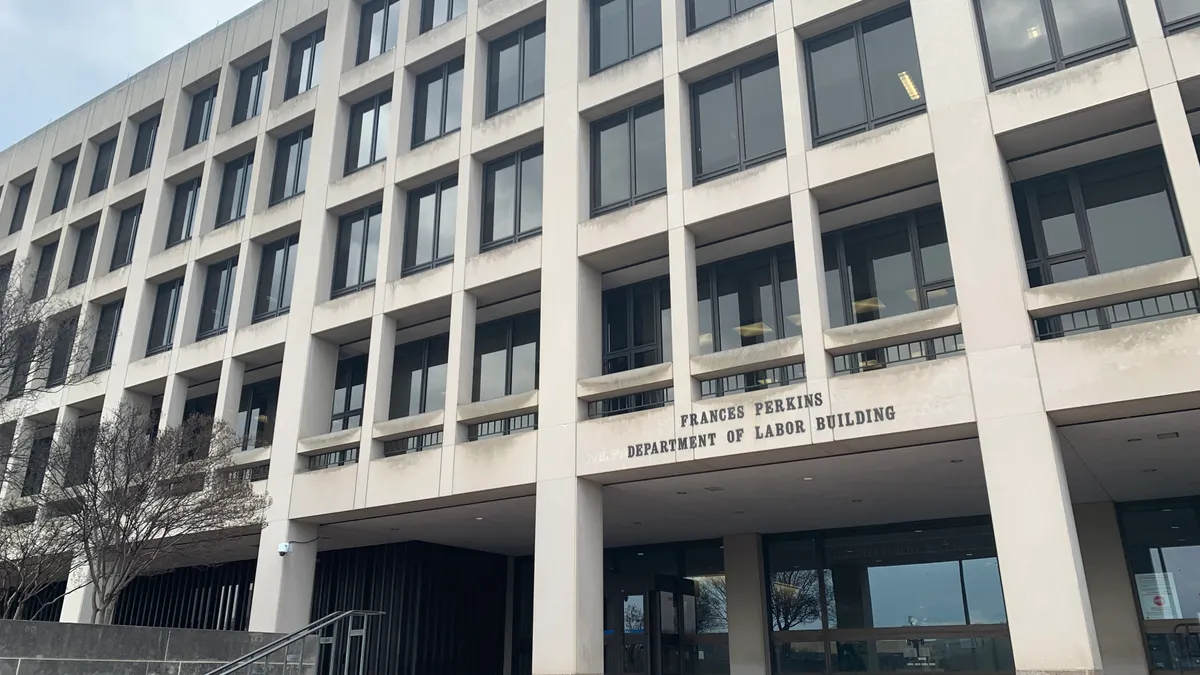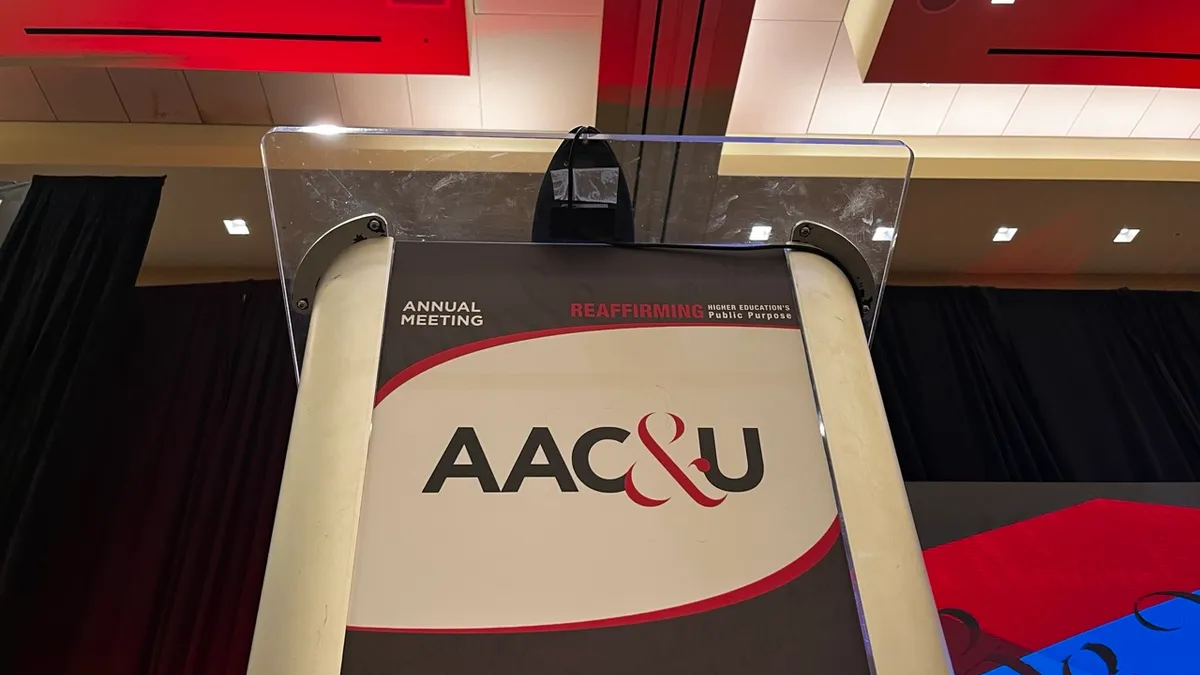About one-quarter of faculty members report feeling pressure to match their political views with those held by administrators and other professors at their institutions, according to a new survey from the American Association of Colleges and Universities and the American Association of University Professors.
The pair, with research support from NORC at the University of Chicago, polled faculty on issues relating to academic freedom and free speech — and the results painted a darkening perception of where they say their rights stand.
Between December 2023 and February 2024, researchers surveyed faculty members across two- or four-year institutions, both public and private. Of the roughly 8,500 respondents who completed the survey, about a third said they have less academic freedom in recent years regarding their ability to speak freely as private citizens, participate in college governance and teach without interference.
Similarly, 36.3% said they occasionally or often felt restricted in what they could say during faculty and department meetings. And 24.1% said they were limited or unable to choose what content they taught in their courses.
The findings should serve as a wake-up call for campus leaders and policymakers, said Lynn Pasquerella, president of AAC&U.
“The results of this national survey provide the most compelling evidence yet of the significant and alarming erosion of academic freedom across American higher education," she said in a statement Wednesday.
Free speech and academic freedom
Free speech advocates have raised the alarm about lawmakers increasingly attempting to influence what can be taught in the college classroom. Colleges have also faced pressure from donors over faculty appointments or institutional responses to world events.
Just over half, 52.7%, reported that their colleagues have become increasingly worried they will be targets of online harassment based on their beliefs or activities as a faculty member.
At the same time, faculty respondents expressed doubt that a majority of their administrators would defend their academic freedom under public scrutiny. Just 28.3% said most of their administrators would support their right to academic freedom if something they said or wrote caused controversy beyond campus. And 16.5% said no administrators at their colleges would do so.
Administrators themselves may be feeling increased pressure to avoid controversy.
Roughly 2 in 5 faculty members said their administration is facing greater pressure from governing boards to avoid negative publicity. A similar share said administrators were facing more pressure from state legislators.
Legislative influence and potential brain drain
Legislative interference in higher education is top of mind for faculty, as a majority of respondents reported "discussing divisive concepts legislation." A report summarizing the survey’s findings define these as measures that attempt to limit discussion topics such as race, gender and discrimination within colleges.
In Kentucky, for example, one proposed bill would have prohibited colleges from requiring classes that teach that anyone of a specific race or sex is inherently privileged or that the state of Kentucky is fundamentally racist or sexist.
Almost half of respondents, 45.7%, said the communities surrounding their institution are now more concerned about "teaching divisive topics" than they were several years ago. Of that group, 62.1%, said this increased attention has harmed their colleges' climate of academic freedom.
Among faculty who work in states that have passed such laws, 29.2% said they felt unable to teach their courses how they want. That's compared to 23.2% of faculty in states without such laws.
In turn, 13.8% of faculty working in states without these laws said they felt restricted from or unable to travel to other states equally using professional development funds.
The survey also found that legislative restrictions on academics could lead faculty to self-censor, rather than risk violating the law or incurring unwanted publicity.
In states with restrictions, 35.5% of respondents said they occasionally or often felt limited in what they could say on social media.
Such laws could push academic talent to leave their institutions given the climate in their states, the survey found.
In states that have passed restrictive legislation, 16.4% of faculty were considering finding a job elsewhere. That’s compared with 9.5% of faculty members in states without such legislation.
Job security
Researchers broke the surveyed faculty into three categories — those with low, medium and high levels of job security and influence over their institutions.
Roughly 4 in 10 fell into the high-level security and influence group, which contained the largest shares of respondents who identify as White, male and as U.S. citizens. It also skewed older, with about 79% of members born before 1977.
Predictably, 78% of faculty in this group held tenure. In contrast, 90% of respondents with low security and influence were either not on the tenure track or taught at institutions without tenure.
Where respondents fell on the security and influence spectrum correlated with how much power they said faculty had over academic freedom.
Among those with high levels of security, 19% said the faculty was the most influential group in protecting academic freedom at a college — over presidents, regents and chief academic officers. In comparison, an average 12% of faculty with low or medium security said the same.









